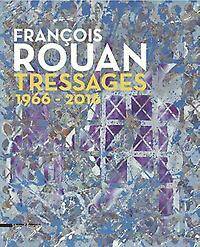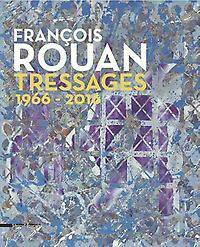
- Afhalen na 1 uur in een winkel met voorraad
- Gratis thuislevering in België vanaf € 30
- Ruim aanbod met 7 miljoen producten
- Afhalen na 1 uur in een winkel met voorraad
- Gratis thuislevering in België vanaf € 30
- Ruim aanbod met 7 miljoen producten
Zoeken
€ 35,00
+ 70 punten
Omschrijving
François Rouan – born in Montpellier in 1943 – is an artist with a fiercely independent mind and approach who questions the nature of painting, giving it a new depth and a sometimes disturbing complexity. A contemporary of the artists of the Supports-Surfaces group, Rouan was aware of their research but did not share their artistic solutions. In 1965 he invented the technique of tressage (weaving), the subject of this catalogue. Not just a way of “painting on strips”, as Jacques Lacan said in 1978, but also and above all a way of thinking. This catalogue testifies both to the artist’s historical importance and to the relevance of his work today. Published in connection with the retrospective exhibition of his work at the Musée Fabre, it brings together around sixty of the artist’s most important paintings, covering fifty years of artistic production. They are accompanied by five essays and an illustrated chronology including images and previously unpublished archive documents.
Specificaties
Betrokkenen
- Auteur(s):
- Uitgeverij:
Inhoud
- Aantal bladzijden:
- 200
- Taal:
- Engels
- Geïllustreerd:
- Ja
Eigenschappen
- Productcode (EAN):
- 9788836636266
- Verschijningsdatum:
- 30/05/2017
- Uitvoering:
- Paperback
- Afmetingen:
- 225 mm x 280 mm
- Gewicht:
- 960 g

Alleen bij Standaard Boekhandel
+ 70 punten op je klantenkaart van Standaard Boekhandel
Beoordelingen
We publiceren alleen reviews die voldoen aan de voorwaarden voor reviews. Bekijk onze voorwaarden voor reviews.











